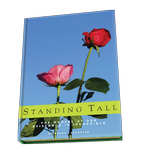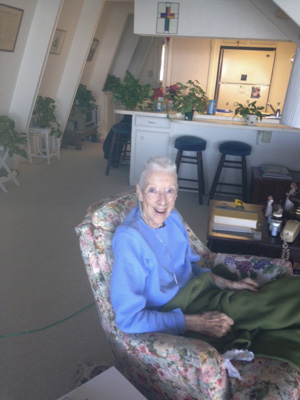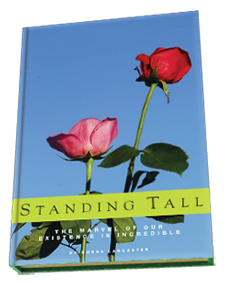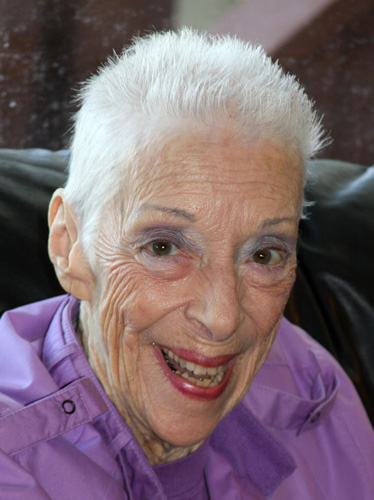INNER AND OUTER CONSIDERING
SCHOOL TALK #8
We’re going to talk about internal considering and external considering. Everything that comes along we do a certain amount of considering, especially in all our personal and interpersonal relationships. How does this affect me? Am I getting to have my way? Am I getting to do what I want to do? Are you interfering with me doing it? .
So let’s only see what am I’m doing. Am I practicing internal considering? Am I considering everything from my non-disturbance? How will I be non-disturbed? How will everything get along? Now this is not only in relationships with boy-girls. But this is in relationships with bosses, with customers, with people in stores that you go in. Everybody that you have any personal contact with, it’s to our advantage to use external considering. Now in external considering we are considering how does my behavior affect you…
So, we let people know that we are concerned with their pleasure and comfort; that we give them a bit of attention. We give them a bit approval and a bit of appreciation. You’re using external considering. Now you’re not doing this for the other person, necessarily. Our self interest is always pretty well all around. So we’re doing it because it’s to my advantage. And I’m not doing it because I’m a goody-good two shoes and want to please you. I’ll do it because I’m very selfish and would like to have what’s to my advantage. . When you’re concerned with another person you are considering them, you have turned loose all urges to be considered yourself. As long as you’re on guard to be sure you’re being approved of and you’re getting no
disapproval and etc. you are constantly occupied with yourself. No doubt many of us have been around people that are on the defensive constantly.
I’m looking out to what’s to my advantage. Don’t you know that things are more to your advantage when everything is running smooth than when there is a big fight. It’s just simply what’s to your advantage. I’m not talking about pleasing anybody else. I’m not talking about that. I’m talking about what’s to my advantage. So consider the other guy. Instead of all your good self-pities, how bad you’ve been trampled upon and all the other stuff.
(Question:) How does this differ from pleasing? Well, pleasing is doing it because I’d feel guilty if I didn’t please. This one I’m doing it because it’s to my advantage. One is conscious and the other one is an unconscious reaction. And this is a conscious behavior. Quite different.
WHAT IS AND WHAT OUGHT TO BE
SCHOOL TALK #14
So today we will talk about what ought to be and what is. What ought to be is what everybody’s struggling for. And, of course, that carries away all the time as to what we
should have, what ought to be, how everybody ought to behave, right? What they ought to do. And we assume, whether they have ever heard of it or not, they ought to know what to do, and if they don’t we give them hell. They should know it. And, of course, there’s hundreds and hundreds of ways we use the ‘what ought to be.’
Do you know of anything you ever get upset about other than something is not what it ought to be according to your viewpoint? Do you ever get upset about something that is alright? or what ought to be and it’s not there? It’s not about what is. It’s what ought to be.
What is, of course, is the situation at hand and you can always do something about it. If nothing else, you can ignore it. But you can always do something about what is. But there is nothing you can do about ‘what ought to be’ except get upset. That’s the only thing you can do is get upset. So, basically, everybody is struggling to get from what is up to what they think would make them happy, is what ought to be, if they could just get there everything would be alright, wouldn’t it? You know that very well, don’t you?
Now what ought it be is not a fact but a fantasy, is it not? That’s fantasy. Some picture you dreamed up in your mind, a fantasy of some sort.
But the point is: We don’t know what ought to be. And if we looked at most of our anxieties, our struggles, our conflicts, and our resistance to everything is because we have not looked at the fact that we do not know what ought to be because we don’t know the outcome of it two weeks from now, two hours from now, two months from now, two years from now. Something that looks so utterly wonderful in your imagination as the way it ought to be has sometimes turned out to be not exactly like you wanted it. So we can only deal with what is. Now if our attention is on what is, there is always something can be done about it.
Resistance is resisting always what is. We’re in conflict between what is and what we think ought to be. And we’re struggling to get from what is to what we think ought to be.
THE WAY
HEADLINES
Now, we spoke a little while ago that there had been certain individuals appeared upon the scene who had brought some new ideas or different ideas….
SELF-KNOWING: Now the first one of these ideas was self-knowing. Self-knowing meant to be aware of the ideas one’s lived by; being aware of the ideals that have been set up and the impossibility of fulfillment.
GRACE: Another idea that these few individuals came and brought, and they have all brought the same message (with different words) was the idea of grace. That man had all kinds of undeserved good, things that were available to him that he didn’t even recognize, he had done nothing to deserve. Possibly the greatest one of which he totally doesn’t recognize is this second force we spoke of—the passive resistance that gives him the strength to grow. Did you ever conceive that if there was no resistance to a plant growing that it wouldn’t have any fibers in it strong enough to hold its own weight up? That if you as an individual didn’t have any resistance your muscles would be as weak as warm jello? Just quivering nothing? But by resistance they grow strong.
Now man’s psychology can only grow strong by resistance and this he has not seen. So he has not seen second force as a gift of which he has done nothing to earn, nothing to give; he has only fought it, struggled against it, tried to escape from it, built barriers against it, created societies which he hoped were utopias of one form or another that there would be no second force in.
FAITH: The next idea was faith. Faith was the ability to see something that is not evident, one of them is to see that second force is the greatest value; to see that there is a higher mind than the intelligence of man and the ability of man to make up his mind to go ahead and use second force and like it, enjoy it, be prepared for it, and know that it will exist and see that it is of great value.
AGAPE: The next one that the great Teachers brought was the idea of agape, which means love; which means again to understand everything and to build no accounts against it; to not feel that anything or anybody owes you anything; that you have been mistreated; that you do not own. In others words an understanding. What is understanding? Understanding this second force again. The people around you sometimes seem to interfere in what you want to do. Then you have to use ingenuity or intelligence or you can give up, feel sorry for yourself, sit down, cry, moan, and get away from it all, huh? That is about what it would amount to. When one sees that all second forces are to be thankful for, to enjoy them, to like them. Then one has agape.
Now, these great men said that if one understood self-knowing (which was to analyze what one had valued you might say), that really the only thing that’s really you is what you put a value on. What you value and how you value.
What is NOT you is what other people, other situations and things have put values on. We say ”I” to the whole mess, but most of it is conditioning. So, if you stop to see what would I put a value one? What would I value of all the conditioning of what I’ve been taught to value (which I never took the trouble to look into, I’ve been taught to value) what would I really value? You’d find it is little if anything other than comfort and pleasure and escaping pain.
Be that as it may, this undeveloped area of ourself, the valuing system can learn from everything about us and especially from these ideas that these great beings brought.
ONE HAS BECOME A NEW MAN
THE WAY (HEADLINES)
This doesn’t take a long time. It is very quick. It requires what? Just attention.
Now attention is like having a flashlight that throws on dark spots. We’ve been totally in the dark as to the value and the nature of all resistance and all passiveness (things that set against our wishes.) Now we throw a light on it and we see it as a gift of an almighty creator to his loving children, his creations that they may develop and be complete and be what they were designed to be; to be a connecting link between the higher mind and earth; between heaven and earth, if you please. Then he would begin to fulfill his destiny.
This living, this experiencing of this state is beyond comprehension. It is beyond description….it can be experienced!
You are challenged and invited to experience it. Where do you start?
By seeing that there is always a resistance; there is always the passive setting against….something… that seems to be against what you want. When you were an infant you couldn’t understand it and you formed a conclusion.
Now you are somewhat grown up. Can you begin to see the value of it?
If you do there is a new life…a Way. If you don’t see it, FIGHT ON.
A STORY
When I lived in Dallas I was given an exotic plant called a Clivia. This beautiful plant had blooms 5 to 8 inches in diameter surrounded by many sturdy broad leaves, somewhat like a Lily plant. The move from Dallas to Whitney in 1995 was on a hot (103 degrees) day in July. This lovely Clivia endured much trauma and barely survived the trip leaving only 3 leaves hanging on. For the past 6 years this plant has been nurtured with fertilizer, water and light. In fact it was moved several times to find a spot in the house where it was happy. It was rather picky.
Last week I thought I saw a dead leaf on it and started to pull it off. Suddenly I stopped. It was blooming! I was breathless!
The bloom was innate within the plant all along! When the right conditions were provided, it actualized or fulfilled its destiny—to bloom!
There are lovely blooms and beauty in all of us. We shine the Light of self-observation and do the work of the Teaching and we can become a whole, integrated being, blooming where we are planted. My stumbling block is to be patient. I have heard Dr. Bob say, “Don’t push. Let Life unfold naturally”.
The self wants to push, get it fixed, get everything tidied up, and take care of all the loose ends so it can be comfortable and non-disturbed. PATIENCE IS THE WILLINGNESS TO BE UNCOMFORTABLE.
I am free to experience impatience.
MIND TICS
Once I wanted total happiness. Now
I will settle for a little less pain.
Most of my problems either have no answer or else the
I answer is worse than the problem
I am not dangerous to anybody except, possibly
In some ways to myself.
There is a whole world which I alone rule, but
It ends at my fingertips.



